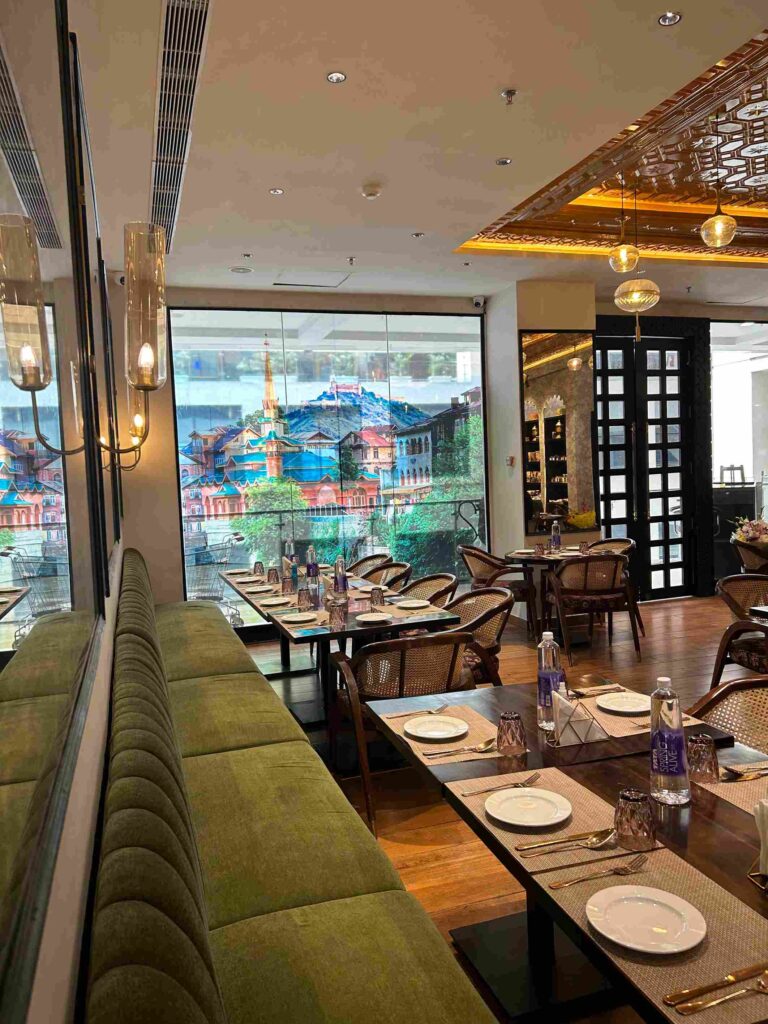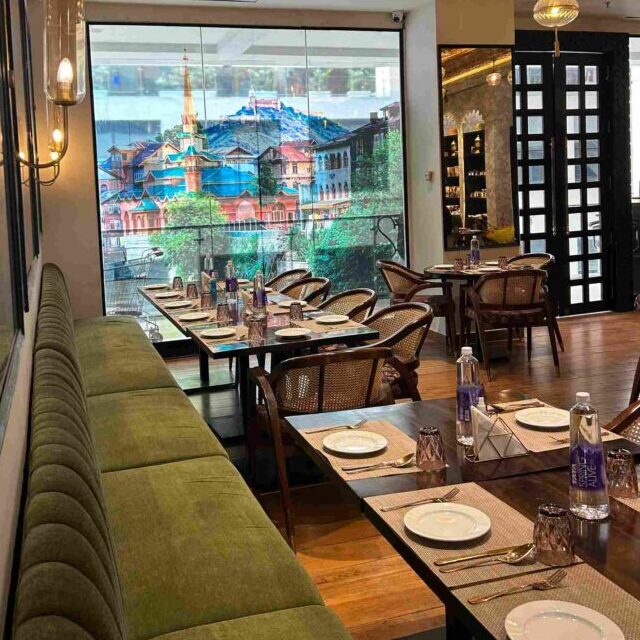
Koshur Pandit households exude not the aroma of saffron/ zafran, or snow, but of instant choley masala on Sundays, saunth on non-veg-free Laedar Tchaman (Yellow Paneer) Tuesdays, and the intriguing “vaer” (a squared structured block of mixed spices) for Roganjosh on English birthdays. The loss of certain smells has been a constant for over thirty years now, and the pursuit, once fervent, has now stagnated for the sake of one’s sanity.
My visit to “Matamaal,” a chain of restaurants dedicated to reviving the lost aromas of the valley, revealed that the creation of intervention and remembrance is paramount. Nostalgia operates uniquely here, much like in our homes, by functioning in extremes. Some migrants find solace in being cradled by the sweetness of a culture that turns bitter for children who never felt connected to it initially. The second group desires to flee to the farthest point from the Valley. An intervention, as I mentioned earlier, becomes a space where modernity and culture collaborate, deceiving opposites and serving just the right blend of both, which is what this establishment, with its meat servings, tea sipping, and gossip harbouring, embodies: balance.
One can discern from its interiors that it was designed for family gatherings; the absence of seats for two speaks volumes. Historical pain transcends generations, and respite should not be granted to just a select few but to all who have survived, be it as individuals or pairs. It grants women migrants, who have memorized these recipes as an act of preservation, a moment for themselves to enjoy what they often end up preparing without getting to savour. The duty of preparing food, traditionally a woman’s role, is now undertaken by a Kashmiri cook who served “lavasa” to us, knowing that he and I both share a love for a seemingly simple bread made of maida. When slathered with butter or paired with choley and walnut chutney, it evokes a familiar taste that the post-exodus generation has grown accustomed to, eliciting gratitude from their parents’ faces as they can now enjoy a whole bread without having to share. Truly, times have changed for the better.
Matamaal also serves as an educational platform, fostering awareness of Kashmiri culture regardless of religion. There is no filtering through any “isms” in this restaurant. There is a conscious effort to bridge what was systematically broken, using food as a tool to provide fleeting comfort. While this momentary respite may be fleeting, it is pardonable for the sake of this one account.
As I reflect on the essence of Matamaal, I realize it is more than just a restaurant; it is an intervention, a bridge between generations and cultures. It offers a fleeting yet precious connection to a heritage that transcends borders and time. Through its culinary offerings and welcoming ambiance, Matamaal pays homage to the resilience of those who have preserved Kashmiri traditions against all odds. It provides a sanctuary for women to relish the flavours they’ve spent lifetimes perfecting and for patrons to rediscover a taste of home.
In Matamaal, we find not only sustenance for the body but also nourishment for the soul—a reminder that in the act of breaking bread together, we forge connections that transcend time and circumstance. And in that shared moment, we discover the profound beauty of balance and remembrance.
– Written by Aakanksha Dassi. Aakanksha is a Masters in Literature student at Jamia Millia Islamia and also a writer based in Delhi.

